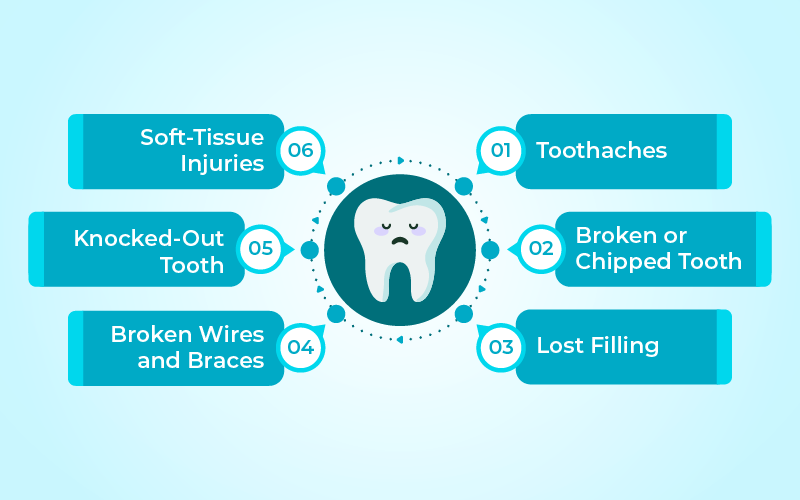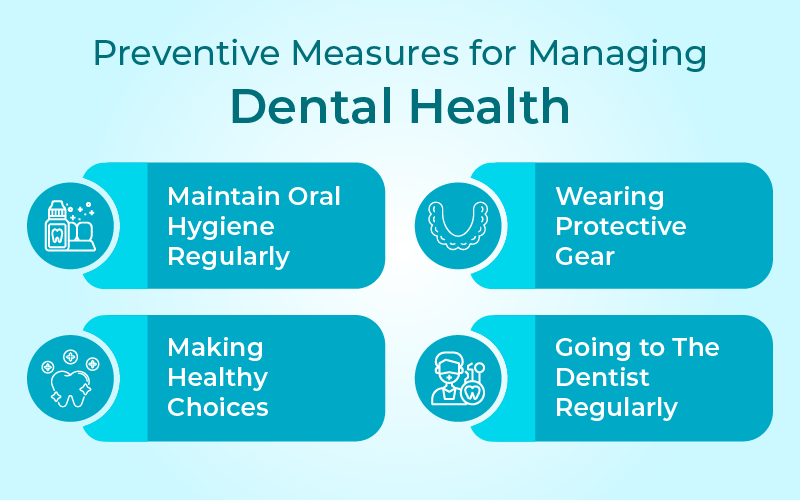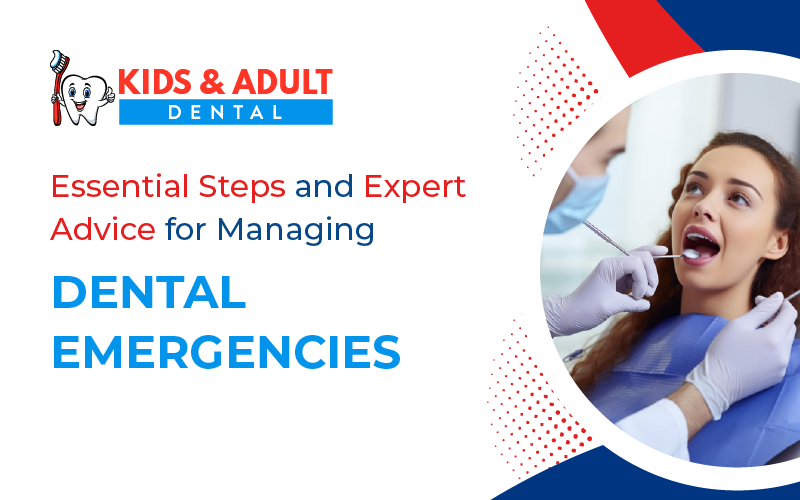Emergencies come without warning, and when it comes to dental problems, the sudden onset of pain and trauma might be distressing. Any dental emergency, such as an injury to the gums or teeth, can be serious and should not be ignored. Ignoring a dental issue can increase the risk of permanent damage and expensive treatment later on.
Here is the quick solution to managing dental emergencies: A comprehensive guide aims to arm you with the necessary steps and knowledge to navigate unexpected situations confidently. This blog outlines some common dental emergencies as well as provides detailed preventive steps to tackle each scenario effectively.
What is a Dental Emergency?
Dental emergency care involves any situation where immediate dental care is needed to alleviate severe pain, control bleeding, or address a significant risk to your oral health. Common examples include knocked-out teeth, severe toothaches, abscesses, or broken teeth that expose nerves.
If you experience such symptoms, it’s crucial to seek dental attention to prevent further damage or complications. In these instances, quick action is essential in saving a tooth or preventing severe infections.
Some of the common dental problems are-
- Broken tooth
- Toothaches
- Knocked-out tooth
- Dislodged tooth
- Lost crown and filling
- Broken wires and braces
What to do with Common Dental Problems?
Here’s a quick guide to what to do when dealing with common dental problems.

- Toothaches
Rinse your mouth with lukewarm water, and if you see swelling then apply a cold compress to the affected area. Use dental floss to remove lodged food. If you don’t find relief take painkillers or put aspirin against the gums near the aching tooth, as it will help in burning the gum tissue.
- Broken or Chipped Tooth
Apply gauze for about 10 to 15 minutes if you see bleeding or until bleeding stops. You can also apply a cold compress to the cheek, lip, or mouth near chipped or broken teeth to keep swelling down as well as relieve pain. If you don’t find any relief then you should see a dentist as soon as possible.
- Lost Filling
As a quick fix, put a piece of sugar-free gum into the hole in your tooth (gum with sugar will hurt) or use a dental cement you can buy at the store. Make sure to visit your dentist soon for emergency dental care.
- Broken Wires and Braces
If a wire from your braces breaks or sticks out and pokes your cheek, tongue, or gum, you can try to gently push it back into place using the eraser end of a pencil. If this doesn’t work, cover the wire’s end with orthodontic wax, a small cotton ball, or a piece of gauze to keep it from poking you until you can see your orthodontist. Do not cut the wire because you might swallow it or breathe it in.
- Knocked-out Tooth
If you knock out a tooth, gently rinse it without scrubbing. Try to put it back in, facing the right way, without forcing it. If you can’t, keep it in your mouth or milk and go to the dentist quickly. The sooner you go for emergency dental care, the better the chance you have to save the tooth.
- Soft-Tissue Injuries
Injuries to the soft tissues that include cheeks, lips, gums, and tongue might result in bleeding. To control the bleeding, here are some steps you can do-
- With a mild salter water solution rinse your mouth.
- Use a tag bag or moistened gauze to apply pressure to the bleeding point. Hold the gauze in place for at least 10 to 15 minutes.
- To control bleeding and pain, use a cold compress on the outside area of the mouth and cheek in the affected site for 5 to 10 minutes.
- See your dentist for emergency dental care, if the bleeding doesn’t stop. Until you can be seen and treated, continue applying pressure on the bleeding area with the gauze to avoid discomfort.
Preventive Measures for Managing Dental Health
Here are some preventive measures to consider-

- Maintain Oral Hygiene Regularly
To keep your teeth and gums healthy, it’s important to brush them at least twice a day and floss every day. This helps prevent cavities, gum disease, and other problems by getting rid of plaque buildup. If you still face any issues then take an emergency dental appointment with your dentist.
- Wearing Protective Gear
When participating in sports with a risk of impacts to the face, wearing a mouthguard is crucial. This protective gear cushion blows, safeguarding your teeth and mouth from injuries, thereby significantly reducing the likelihood of dental trauma. In the event of an accident, having the contact information of an emergency dentist handy can ensure prompt treatment, further minimizing the risk of long-term damage to your teeth.
- Making Healthy Choices
What you eat affects your teeth. Try to cut down on sugary foods and drinks that are acidic, as these can wear down your tooth enamel and lead to cavities. Also, staying away from tobacco is good for keeping your teeth healthy.
- Going to the Dentist Regularly
It’s important to visit the dentist every six months. These regular visits help your dentist spot and treat any problems early on, preventing them from becoming worse. Getting your teeth cleaned and checked regularly helps avoid sudden dental issues and keeps your mouth healthy. Additionally, if you need urgent dental care, seeking an emergency dentist in Denver can provide prompt treatment, further safeguarding your dental health.
Conclusion
To be ready for dental emergencies, you need more than just knowing what to do; you also need a dental emergency kit. Your kit should have gauze, a small container with a lid (to keep a tooth that might fall out), pain relief medicine, and the phone number of your emergency dentist office.
As you navigate through this blog, empower yourself with the knowledge and necessary tools to handle dental emergencies effectively. With the above steps, you can turn unforeseen dental problems into manageable situations.

